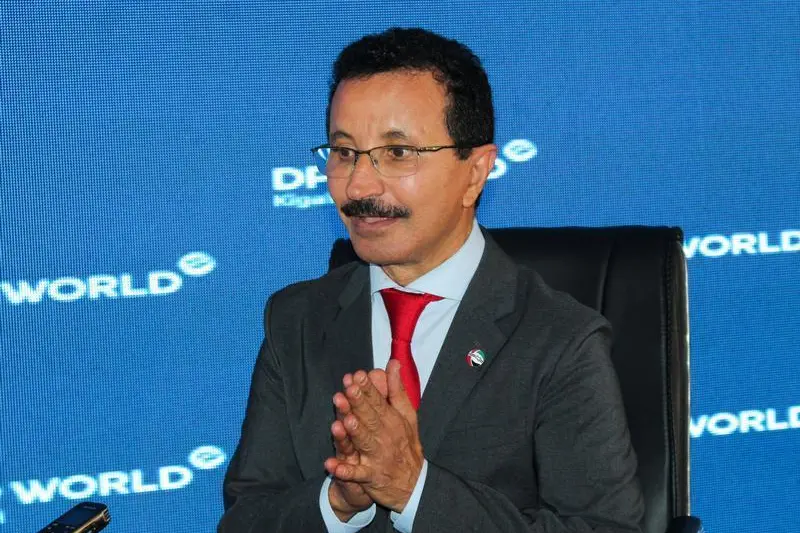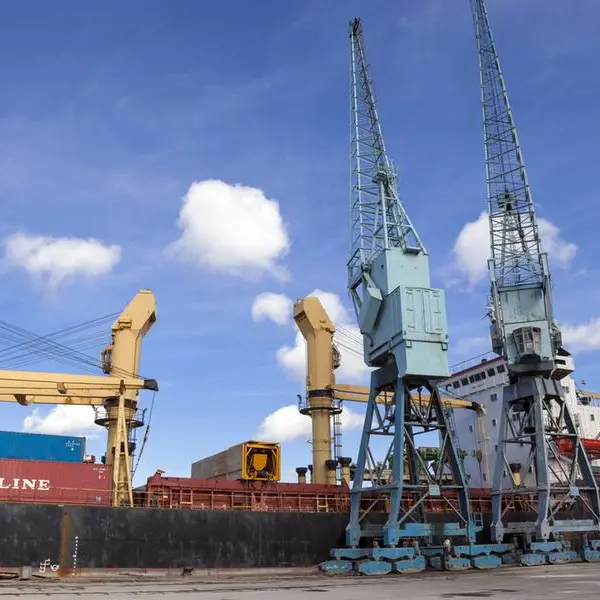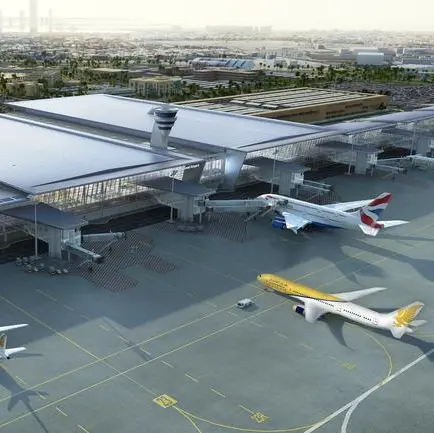PHOTO
Supply chain bottlenecks will continue to put pressure on prices this year and are not likely to clear until 2023, but businesses are optimistic about the future of trade, DP World CEO Sultan Ahmed Bin Sulayem has said.
Sulayem made the remarks on Thursday, as the global port operator released a report that explored the impact of COVID-19 on trade operations and how businesses are navigating a risky environment.
The research, commissioned by DP World and produced in partnership by Economist Impact, is based on a survey of 3,000 respondents. It found that supply shortages will increase inflationary pressure in 2022.
However, trade is expected to expand further this year, with exports already rising by 16 percent in 2021 and imports by 12 percent. Production levels have been unable to keep pace with surging demand, leading to supply shortages.
"The report is evidence that rising freight rates, and low production levels, coupled with a volatile social-economic situation in Europe, will keep inflation high in 2022, as companies navigate a risky trading environment," Sulayem said.
"But supply chains are adapting, and executives are positive about the future of trade, which will prove durable in the near to medium-term despite any inflationary fears."
Expansion in exports, imports in 2021
Among the respondents polled for the survey, 68 percent and 62 percent reported an expansion in exports and imports, respectively, compared with 42 percent and 48 percent in 2020.
Growth in exports and imports was mainly driven by growing demand, as cited by 36 percent and 43 percent of respondents, respectively.
The surge in demand, combined with supply shortages, put a pressure on prices. New waves of COVID-19 cases also disrupted business operations, as staff had to stay away from work to quarantine and recover. This has resulted in lower output in some industries, according to the report.
"In others, such as agricultural or microchip production, supply is relatively inelastic. Together, these factors are resulting in supply shortages that are driving up prices," the report continued.
Other concerns
Aside from rising inflation, executives are also concerned about geopolitical tensions between the US and China, with 30 percent claiming that the ongoing trade war between the two countries is the top reason to be pessimistic about global trade.
Despite the concerns, international revenue grew for most of the companies exporting freight in 2021.
Companies are also changing their strategic outlook, with 48 of those surveyed saying that diversifying their supplier base is their primary strategy, with efforts focused on sourcing raw materials (24 percent) and managing shipping lines and logistics (21 percent).
(Reporting by Cleofe Maceda; editing by Seban Scaria)





















